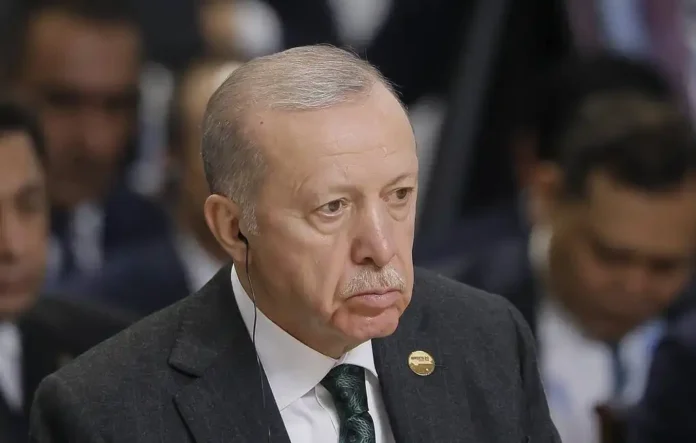During the BRICS Plus/Outreach meeting at the BRICS Summit in Kazan, Turkish President Recep Tayyip Erdogan emphasized the group’s unique contribution to establishing a fair world order amid the ongoing international instability.
The summit, held from October 22 to 24, marked the 16th BRICS Summit under Russia’s chairmanship, with leaders discussing the evolving global landscape and regional challenges.
Addressing the meeting, Erdogan pointed out that the world is experiencing increased social and economic vulnerability as the balance of power shifts.
“Under current conditions, social and economic vulnerability is on the rise while the balance of power is changing. Political and financial mechanisms, the product of the post-WWII period, cannot live up to current expectations,” Erdogan stated. “Turkey is confident that a more just world is possible. We are encountering numerous challenges.”
Erdogan affirmed Turkey’s commitment to strengthening dialogue with BRICS, describing the relationship as built on “mutual respect and mutually beneficial cooperation.”
He argued that the platform provides a significant opportunity to pursue a more equitable global order, adding, “This venue has a unique input in the construction of a fair world order.”
The Turkish leader also highlighted the importance of multilateral cooperation to address common global issues. He stressed that Turkey highly values joining forces with “friends on multilateral platforms” to find solutions based on “common sense.”
Erdogan further noted that promoting trade, economic growth, and sustainable development should be key objectives for the group, stating, “The combination of these two aspects may lead to fostering trade, economic growth, and stable development. Therefore, we consider the bolstering of multilateral cooperation for the sake of fair global development and security as an extremely pertinent issue.”
The BRICS group, initially founded in 2006 by Brazil, Russia, India, and China, expanded in 2011 with the inclusion of South Africa. The latest summit featured a significant development for the association, as leaders announced the addition of five new members.
Starting January 1, 2024, Egypt, Ethiopia, Iran, Saudi Arabia, and the United Arab Emirates will become full-fledged members, further increasing the group’s influence on the global stage.
The Kazan Summit also resulted in the adoption of the Kazan Declaration, which outlines BRICS’ stance on key global and regional issues, including conflicts in Ukraine and the Middle East.
The declaration serves as a summary of the meeting’s outcomes, reflecting the group’s positions on its development, economic growth, and its approach to addressing international crises.
Erdogan’s remarks came amid ongoing discussions about reshaping global institutions to better reflect the current realities and power dynamics.
The Turkish president’s call for a more equitable world order aligns with broader BRICS goals, which aim to enhance cooperation among emerging economies and challenge the dominance of Western-centric institutions established after World War II.
The summit in Kazan marks a pivotal moment in the group’s evolution, as BRICS continues to expand its reach and influence through new membership and multilateral engagements.
The discussions underscore the growing importance of BRICS in shaping the future global order, as member states seek to address pressing economic, political, and security challenges together.

